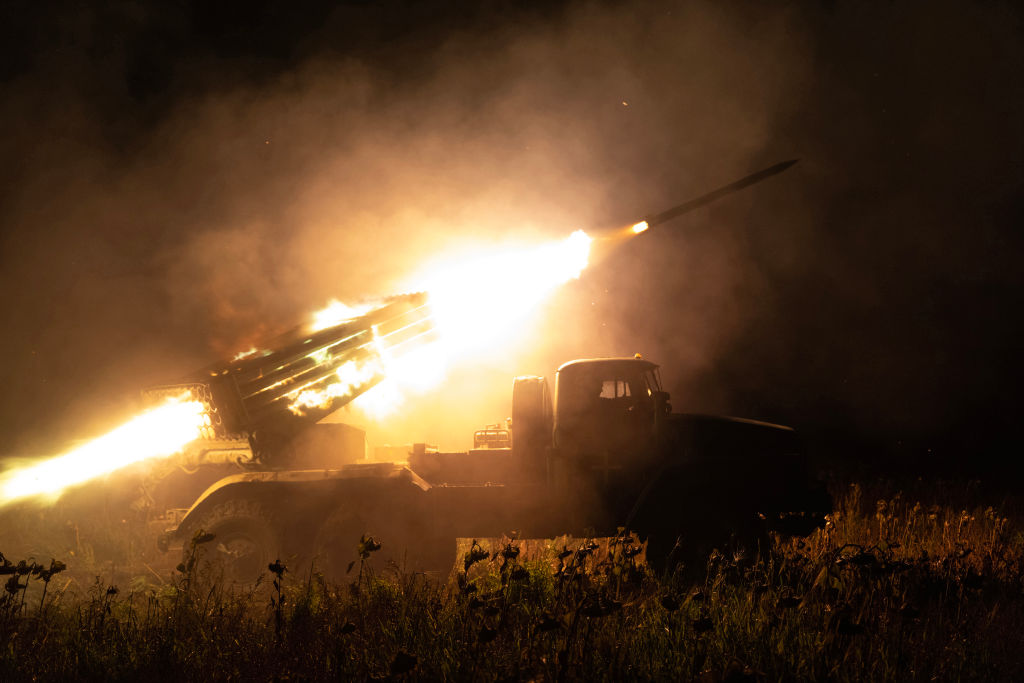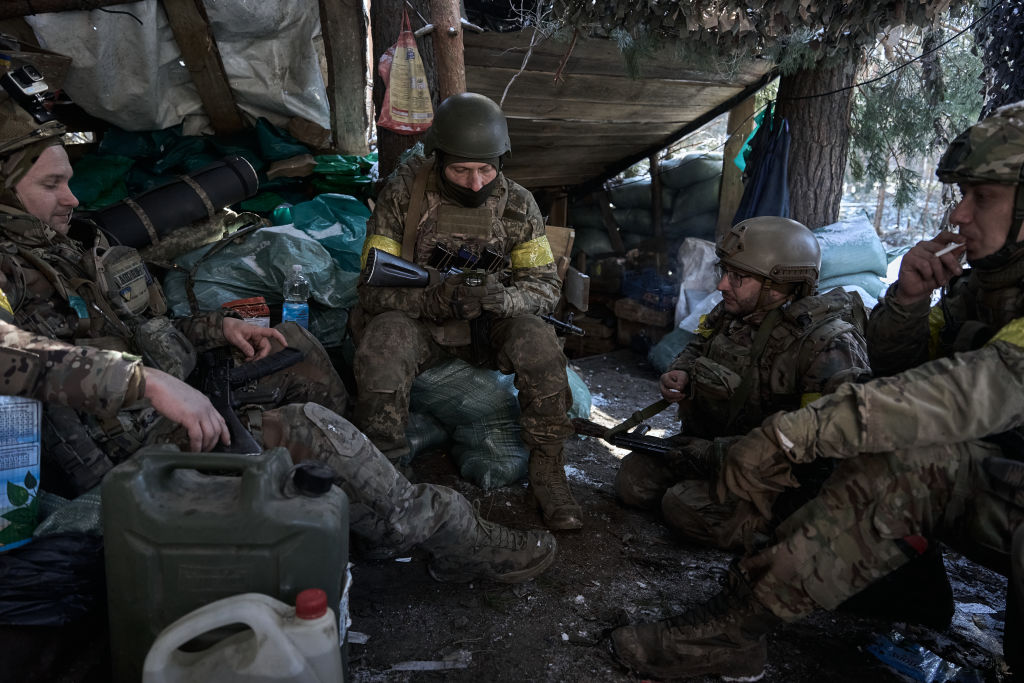Here is something from one of my Bush-Republican friends, one of those American Republicans who hates Trump but will not desert the party. He has sent it to me because it upsets him that any part of American defence thinking could be moving to such a weird position.
This, from a special assistant at the National Nuclear Security Administration, a federal operation which looks after America’s nuclear weapons stockpile: “It is up to allies, people in power, and the institutions they serve to vocalize their support for LGBTQ+ inclusion [in the nuclear field], not just because it is the right thing to do, but also because queer people add value to nuclear weapons policy and discourse.”
Yes, okay, weird. But I am too busy worrying about European defence thinking to help my Republican friend worry about sexual directions at an American nuclear stockpile, interesting as those might be.
Instead, try this for European thinking and start worrying. Nothing to do with sex. It is from a report this month from a German think tank, the Kiel Institute for the World Economy: “After decades of military downsizing, German military spending is woefully inadequate to meet the new strategic challenge posed by Russia… it would take Germany as much as a century to bring its military inventory up to the level of 20 years ago.”
Keep going: “In contrast, Russia is radically increasing its capacity to produce armaments, including advanced systems, and is now in a position to produce as many weapons in six months as all of Germany’s armed forces currently field.”
“The German government is currently barely managing to replace the weapons it is sending to Ukraine–the Bundeswehr’s stockpile of air defence systems and howitzers has even plummeted.”
“At current rates of procurement, Germany would re-establish its 2004 capabilities in combat aircraft in about 15 years, in tanks in roughly 40 years—and in howitzers in only about one hundred years.”
That is worth keeping in mind as the political arguments in Berlin go on about whether Germany will raise its defence spending to two per cent of GDP or not. At the rate procurement of weapons in Germany is going, the two per cent is nothing but a whimsical notion. Whatever the money, weapons are appearing too slowly, and with too many flaws. For example, consider the army’s hundreds of Pumas, the infantry fighting vehicles, which Germany now admits cannot fight without €2.6bn spent on retrofitting.
Meanwhile in Russia, the manufacturing capacity has grown to the point where it can produce the equivalent of the Bundeswehr’s entire arsenal in just over half a year.
So perhaps a ceasefire in Ukraine would let Europe catch up on its weapons procurement? Hardly. As Kiel puts it, “A ceasefire in Ukraine would allow Russia to replenish its military stocks at an unprecedented rate.”
Move the defence spending any way you like, I am not sure that Germany can ever catch up to where it needs to be. The defence budget is not there, the weapons are not there, because in Europe, and especially in Germany, the desire to spend money on war and weapons is not there.
Listen to The Wall Street Journal in a report on Sept 14. When the Cold War ended, military budgets in Europe were slashed and the money instead was put into social programmes. Now the citizens do not want to give up their benefits.
“In Germany, Europe’s largest economy, military bases are crumbling or have been converted to civilian use, including sports centres, old people’s homes and pension fund offices. The army, which numbered half a million in West Germany and 300,000 in East Germany during the Cold War, has today just 180,000. It now has a few hundred operational tanks, compared with more than 2,000 Leopard 2 main battle tanks its West German predecessor had in the late 1980s.”
And yet, even faced with that, the Germans do not want to give up subsidies, free travel passes, fat pensions, subsidised medical care, child benefits, and the rest, to defend what used to be called with pride the “Fatherland.”
Add to that the collapse of German industry – ask who is making cars and the answer is, the Chinese — and what the European Central Bank sees as a worsening for all the eurozone, and there is no desire to spend money on war.
At some point, this refusal to increase defence spending and procurement of weapons will finally frustrate the United States so much that they may well pull back from their vast financial support of NATO. If Donald Trump wins the presidency, you can be sure that will happen. He has already said that Russia can “do whatever the hell they want” to any European country that will not spend at least two per cent of GDP on defence.
And yet, except for the Baltic States and Poland, the urge to spend and defend in Europe is not there. Keep digging and the situation keeps getting worse.
Another think tank, CESinfo, which calls itself global but is based in Munich, (and if you ever want to feel happy, stay away from German think tanks, but on we go anyway), notes that whatever the defence spending of individual European states, they are “not aligned in their military spending priorities, and for this reason, simply increasing national defence spending will not automatically translate into higher common EU industrial and operational capacity.”
This means “the risks of wasting growing military funds are considerable and should be more widely debated at the political level.”
In other words, put the money in at this end, but what comes out the other end is a motley selection of weapons that do not all work together.
What are we in Europe supposed to do about this? I for one have a handy go bag, as I live a three-hour drive from the Ukrainian border and you never know when it is going to kick off in my neighbourhood. I am ready and I know which direction is west.
As for the rest of you, you are on your own. I have no solution for you. If you are lucky, you will only live through the coming decades of European economic decline. If you are unlucky, say your prayers. Russians fight dirty.






To get his eco-friendly combat vehicles ready for a fight, Scholz will have to pay billions